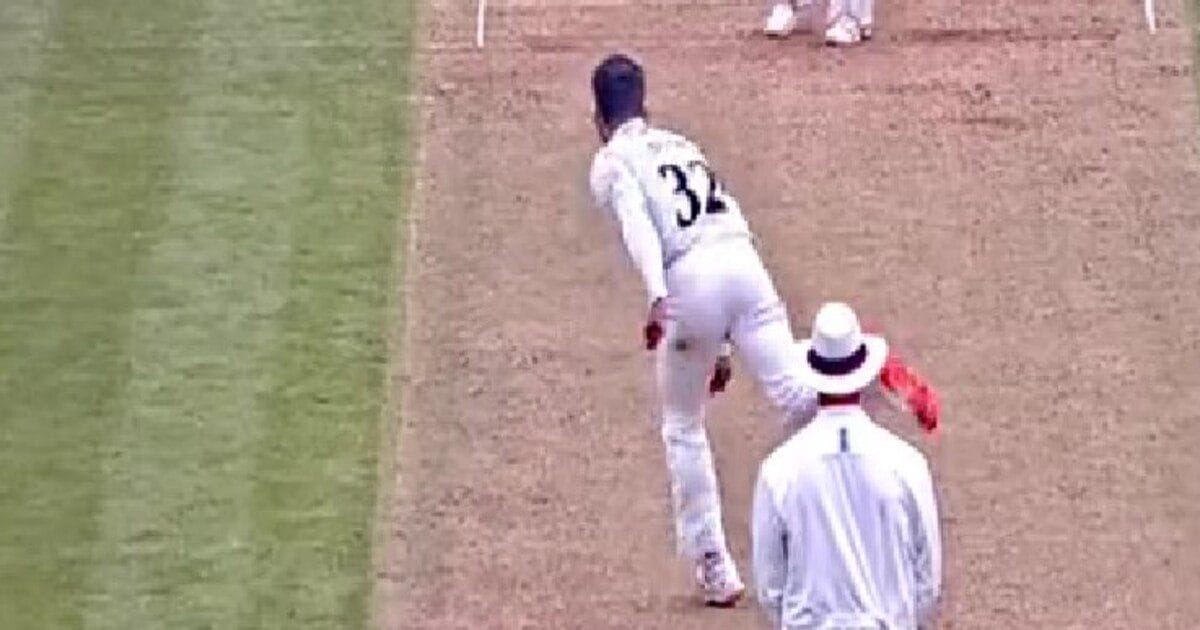New Delhi. In the game of cricket, the umpire is as important as the players. It is the umpires who ensure that the game is conducted as per the rules on the field. Often players do not agree with the umpire’s decision, but regardless of this, it is his responsibility to give a better decision in the interest of the game. In modern cricket, the challenges for umpires are increasing and their decisions are being tested on the basis of technology. Despite this, the importance of the umpire cannot be denied. The umpire is the only one on the field who is in a position to judge the angle, direction and speed of a ball in a better way.
There have been many umpires in cricket who gained the respect of players and fans with their excellent decisions. Among these, the names of England’s Dicky Word and Simon Taufel are important. Apart from this, many umpires have also gained attention due to their style of giving decisions and controversies. Let’s take a look at such prominent umpires.
Steve Buckner: Got the name of ‘Slow Death’
Jamaica’s Steve Bucknor was nicknamed ‘Slow Death’ for taking considerable time in giving decisions. Many times, he took so much time to give out on appeal that even the bowlers and fielders lost hope of getting a decision in their favor. Apart from cricket, Buckner has also played the role of referee in football matches. He has the record of umpiring in 128 test matches. During his umpiring career spanning nearly two decades, he also umpired in 182 ODI matches. Buckner has the credit of umpiring in five consecutive Cricket World Cup finals between 1992 and 2007. At the beginning of his career, Buckner was respected for his decisions, but as time passed, questions started being raised on his decisions. Master Blaster Sachin Tendulkar had to fall victim to his wrong decisions many times. Once he declared Sachin out behind the wicket when the ball was far away from the bat. After these decisions, Buckner was not made the umpire in the matches against India.
Billy Bowden: Special style of giving outs and fours and sixes
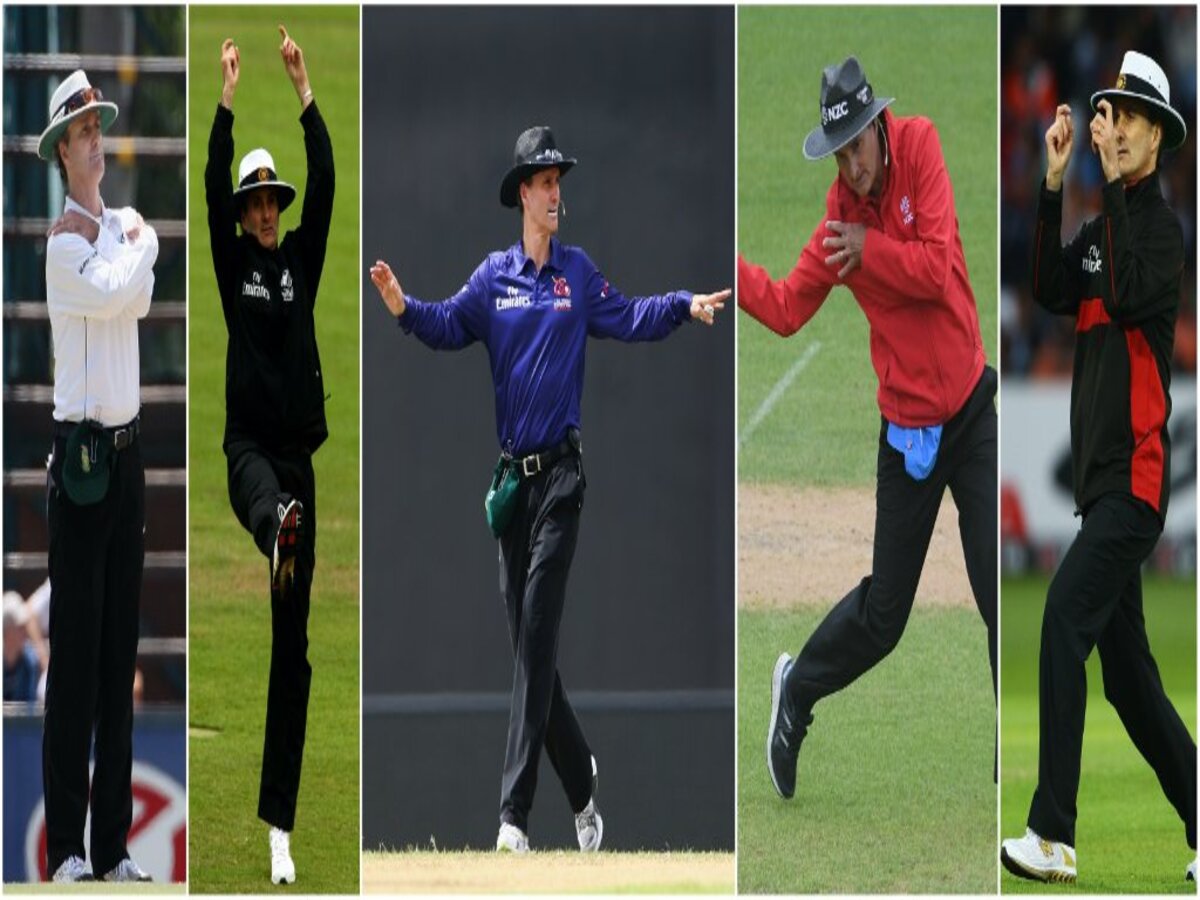
New Zealand’s Billy Bowden is also counted among the respected umpires of the world. He was a part of the elite panel of umpires. Bowden was known for giving decisions/signals in an interesting manner. Unlike other umpires, Bowden used to keep the finger of his right hand crooked while declaring a batsman out. This style was as if he was giving an order to hang someone. Similarly, while giving a four, he used to wave his hands in all directions, while while giving a six, he used to slowly lift his hands up like ordinary umpires. Cricket lovers loved Bowden’s style of giving signals. The reason for Bowden giving signals in this way was that he was suffering from arthritis, due to which he had difficulty in raising his hands quickly. In such a situation, he adopted this style which later became his trademark. Billy, with a slim body, played the role of ground umpire in 84 Test matches, 200 ODIs and 24 T20 matches.
David Shepherd: was famous for his sense of humor
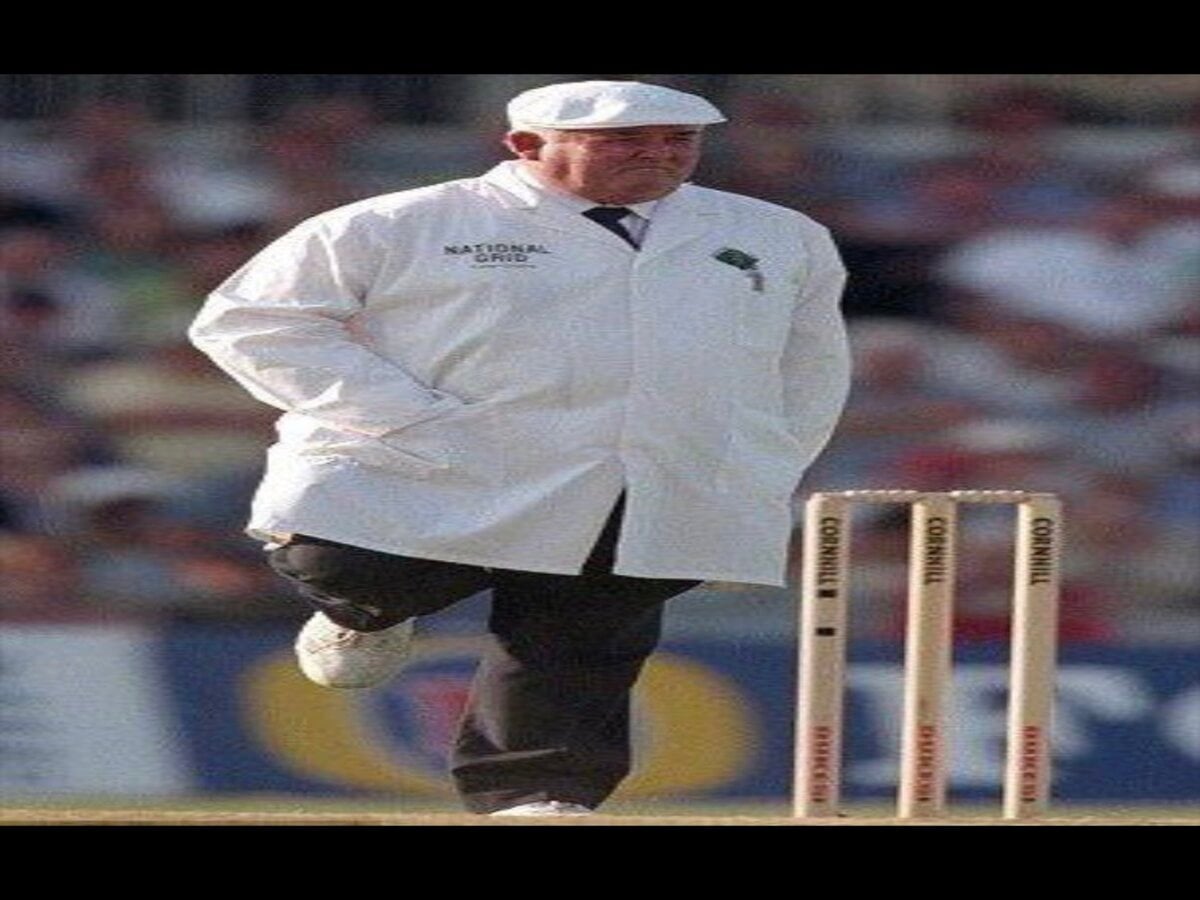
David Robert Shepherd of England, famous for his sense of humor, played the role of ground umpire in 92 Tests and 172 ODIs. Before trying his hand at umpiring, the massive Shepherd had also played as a batsman for a county team. On the cricket field, when a team’s score was ‘Nelson’ (same number like 111, 222, 333 or 444), they would take turns raising one leg. It was a moment full of entertainment for the spectators watching the match on the field and on TV. According to beliefs, Nelson number is considered as ‘Panauti’ or bad number. The name ‘Nelson’ was named after Admiral Nelson. It is said that Nelson, who fought in many wars, was missing one eye, one leg and one arm. Later, 111 and similar multiple scores (222 or 333) started being considered as panauti in cricket teams. To end this trick, Shepherd used to lift one leg one by one. Shepherd died in October 2009.
Simon Taufel: Very accurate in decisions
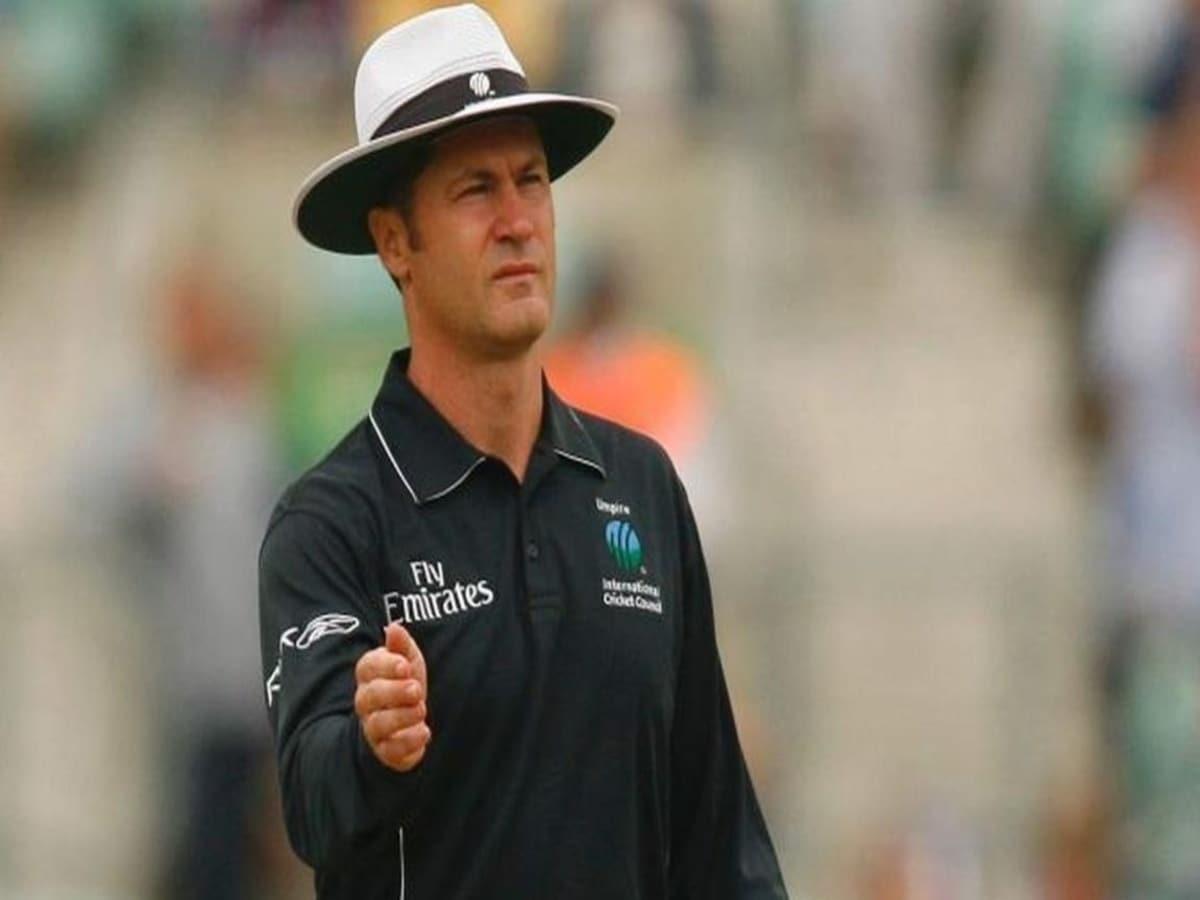
Australia’s Simon Taufel was highly respected in the cricket fraternity for the high level of his decisions. Due to his accurate decisions, he was chosen ICC Umpire of the Year five times. There were very few such occasions when any decision of Tufel was proved wrong during review. Taufel started his umpiring career on 13 January 1999 in the ODI match between Australia and Sri Lanka and played this role in 74 Tests, 174 ODIs and 34 T20Is. To devote more time to his family, Taufel said bye-bye to umpiring in 2012. He is currently serving as Umpire Performance and Training Manager in ICC.
Darrell Hair: Controversy accompanies bodice-ripper
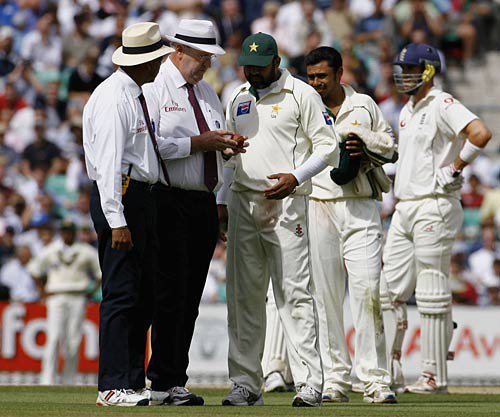
Australia’s Darrell Hair was an umpire who was deeply associated with controversies. He was like a villain for the Sri Lankan cricket team. Hair, who played the role of ground umpire in 78 Tests, 141 ODIs and 6 T20Is, came into limelight when he declared Muralitharan’s balls as no balls in the Melbourne Test of Sri Lanka’s 1995-96 tour of Australia. Angered by this, the then Sri Lankan captain Arjun Ranatunga took his team out of the match. Hayer was again embroiled in controversy when he accused the Pakistan team of ball tampering in the Oval Test against England in August 2006 and awarded 5 runs to England. Expressing protest over this decision, Inzamam Ul Haq’s Pakistan team refused to return to the field, as a result England was declared victorious. Hayer was included in the ICC’s elite panel of umpires in 2003 but due to alleged bias against Asian teams, he never got the respect he deserved. In 2008, Hair said goodbye to umpiring.
